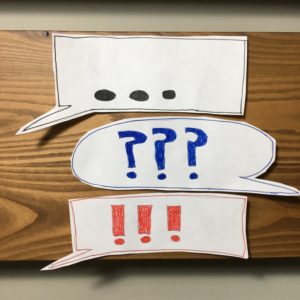Do you know what your emotions, feelings, and thoughts are, or are they simply noise to you? Are they permanent and possibly universal things? If you cannot communicate something like your thoughts or feelings to someone else—if you do not have the words for them—then do you know them? Do they even exist?
To put it another way, perhaps the most important part of good communication is the ability to transfer knowledge clearly and to have a mutual understanding of what one another is saying. Obviously, for someone to understand you, you first have to understand yourself. To know something, you must be able to describe it—describe it with words. At least, that’s what we are led to believe.

One way this is done is to describe something like an idea or an object you “know” but don’t have the proper words to adequately communicate to another person. You can try to replace one incorrect word for another—a symbol for another symbol—although this just goes around and around in circles. Similarly, it’s like attempting to describe a delicious meal to someone: you “know” what it tastes like, although any attempt to capture how it tastes in words does it no justice. Thus, you cannot describe it—you do not know it.
In another case, let us suppose that you were to describe the most wonderful experience you can recall. Now, in addition, you were to describe the worst experience you can remember. Both the former and the latter don’t exist. That is to say, all you have just done is described (and oversimplified) experiences in the expression of words, signs, and symbols. As hard as you try and as much as you desire, the present moment cannot resurrect past experiences through non-present language; it can only create new ones.
Do you ever talk to yourself? What a silly question: of course, you constantly do. But why? Perhaps that is just what people do: talk, rationalize, and communicate verbally. If we were to take a moment to listen to a heartbeat, or attempt to feel our socks on our feet without moving our feet, you may find that all happened without the use of language.
To state that all worries, for example, are imaginary would be ridiculous—but, in a way they are, and it isn’t as ridiculous as it may sound. What are worries? They are words. What are words? They are signs, things that stand in for other things—they are not the things themselves. To experience worry is the same as experiencing glee; the only difference is what we name them.

